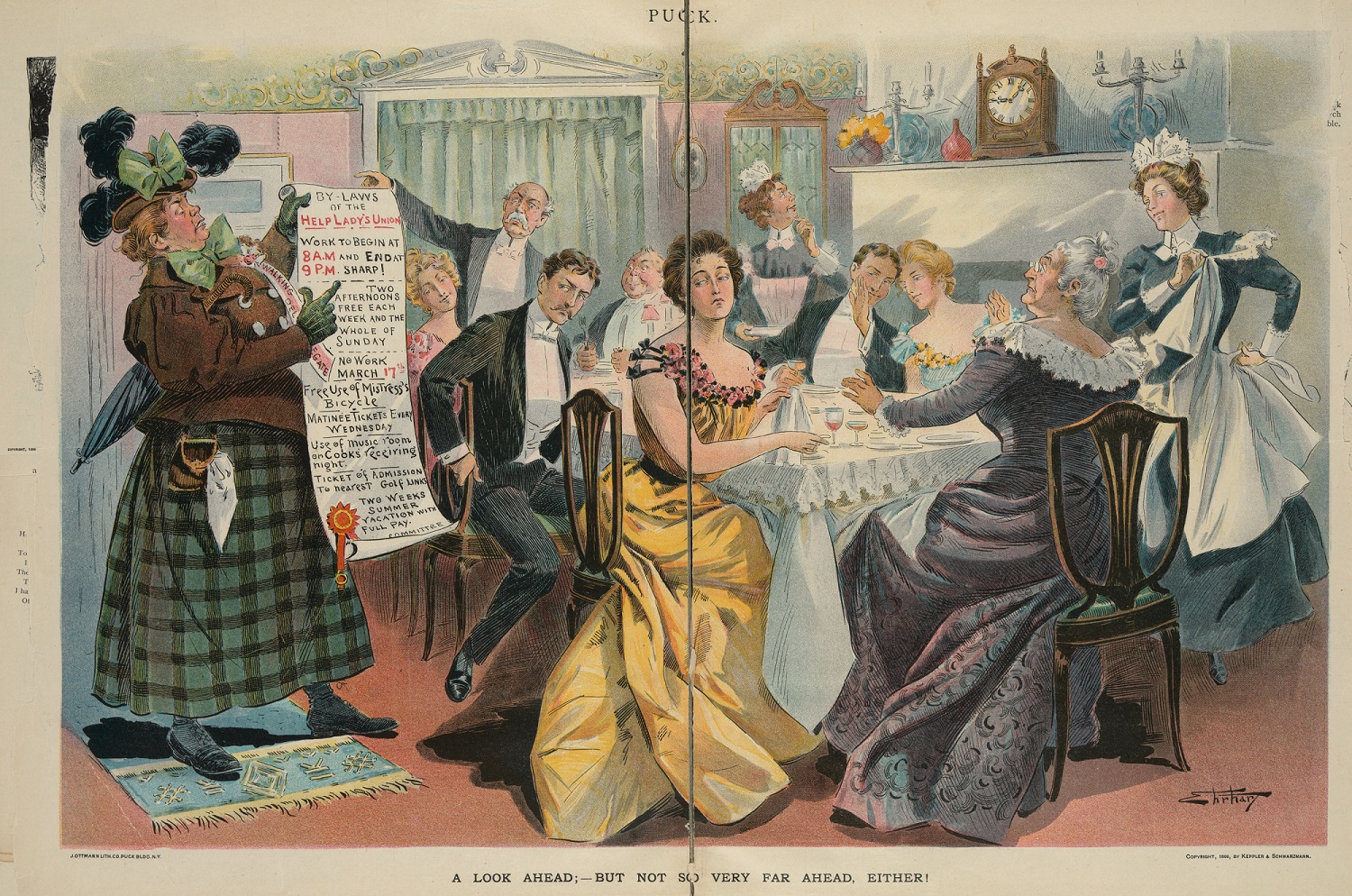Background
Irish immigrants started arriving in the United States in large numbers in the 1840s. The main reason for this was the potato famine, which began in Ireland in 1845. It destroyed the dominant food source for most of Ireland’s citizens. It is estimated that nearly one million people died during the famine and another one million emigrated from Ireland.
Irish immigrants found plentiful work opportunities and the freedom to practice Catholicism in the United States. However, they still faced discrimination. Many Americans considered the Irish to be low class and uneducated. Political cartoons often portrayed the Irish with ape-like faces. American society was predominantly Protestant and looked down on the Irish for their Catholic faith as well.
Many Irish immigrant women came to the United States on their own in their late teens or early twenties. They often found work in domestic service. Employers offered them room and board, which allowed the Irish women to send more money home to their families in Ireland. While living with an American middle-class family, the young women learned about American customs and culture. Some middle-class families thought employing immigrant women was a way to help “civilize” them. In addition to being treated as inferior, domestic servants worked long hours and had little privacy.
About the Image
The cartoon shows a stereotypically drawn Irish-American woman walking into a fancy dinner party. She is holding a list of demands for better working conditions. The list includes set work hours, paid vacation, use of the lady of the household’s bicycle, and no work on March 17 (St. Patrick’s Day). While the domestic workers are shown taking off their aprons as they make their demands, the wealthy guests look on with contempt.
Vocabulary
- contempt: A feeling of disgust.
- domestic work: Paid work done in someone’s home, including cooking, cleaning, and taking care of children.
- famine: A situation in which large numbers of people have little or no food, and many of them die.
- room and board: Provided with food and a place to sleep, usually as part of the conditions of a job or educational program.
- St. Patrick’s Day: Ireland’s national holiday.
Discussion Questions
- How are the different people in the cartoon portrayed? What does it reveal about the cartoonist’s views of these groups of people?
- Examine the list of demands for better working conditions. What does it say about the lives of domestic workers? Why is the worker making these demands?
- Based on this cartoon, in what ways did Irish domestic servants hold on to their Irish identity? And in what ways did they adapt to American society?
Suggested Activities
- APUSH Connection: 6.8: Immigration and Migration in the Gilded Age
- Analyze the cartoon by printing it out and cutting up the image into smaller sections.
- Black women were the other large group working in domestic service. Compare the experiences of Irish and Black domestic workers. How did race influence their experiences?
- Compare the fight for better working conditions by domestic workers to other working women by pairing this resource with an article about factory work and photographs of factory workers.
- Consider the advantages Irish immigrant women had because of their race by comparing this cartoon with the Page Act, Fannie Barrier Williams’s description of Black women in Chicago and the articles about El Paso laundry workers.
- Explore the experiences of Irish immigrant women by examining this cartoon alongside the life story of Leonora Barry.
Themes
WORK, LABOR, AND ECONOMY







